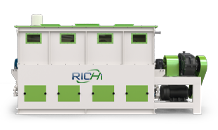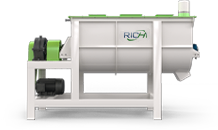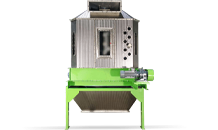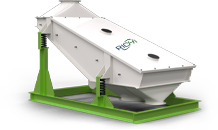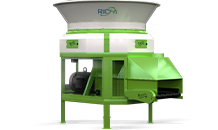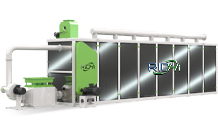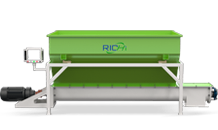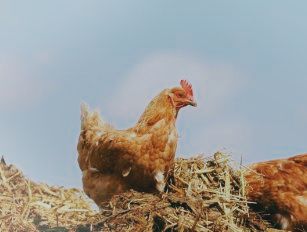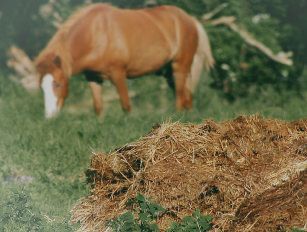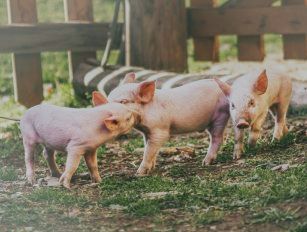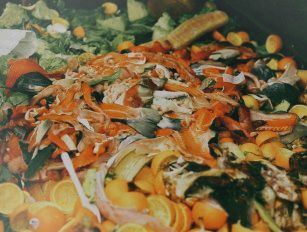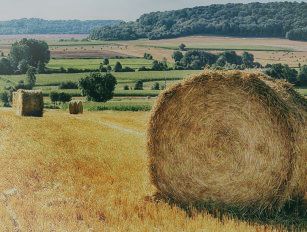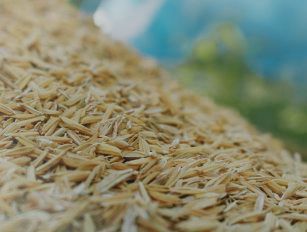Powdered fertilizer, granular fertilizer, or pelletized fertilizer output – tailored to your market demands.

FERTILIZER GRANULATOR EQUIPMENT
From organic waste to precision NPK blends, our high-performance granulation equipment transforms diverse materials into premium fertilizers. Whether processing powdered livestock manure, mixed NPK formulations, or bulk-blended nutrients, our systems deliver uniform, market-ready granules with optimal hardness and nutrient consistency.
Backed by 25+ years of engineering expertise, we customize each solution to your specific raw materials and production goals—ensuring maximum efficiency from fermentation to final packaging.
APPLY
At RICHI MACHINERY, we specialize in designing and manufacturing robust fertilizer granulator equipment & systems that transform diverse raw materials into high-quality fertilizers. Our expertise spans organic, compound, organic-compound, and bulk blending fertilizer production, ensuring optimal solutions tailored to your specific requirements.

organic fertilizer pellet

manure fertilizer pellet

compost fertilizer pellet

npk compound fertilizer
Core Equipment Systems
Our ring die fertilizer granulator equipment serves as the heart of efficient fertilizer production lines, engineered to transform diverse materials into uniform, market-ready granules. This precision machinery is complemented by a complete ecosystem of supporting equipment including turners for optimal fermentation, crushers for material size reduction, precision mixers for formula accuracy, drying systems for moisture control, coating drums for product enhancement, and automated packaging solutions.

Achieve granulation rates exceeding 95% across varying material densities and moisture levels.

Each system is rigorously tested with client-specific materials to optimize preprocessing requirements and process parameters.
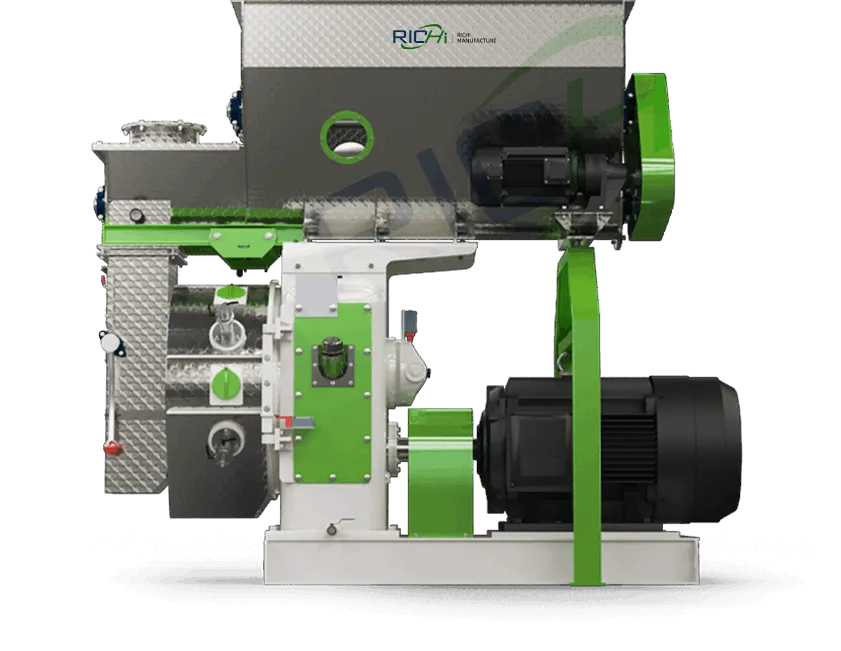
From Raw Materials to Market-Ready Products
These robust machines deliver consistent compression across various material types – from organic waste to NPK formulations.
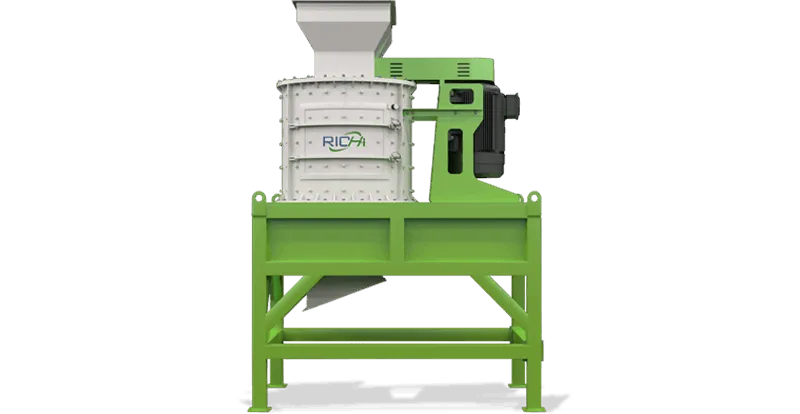
fertilizer crusher machine

Organic fertilizer dosing system

Organic fertilizer dosing system

fertilizer drying machine

manure compost turner
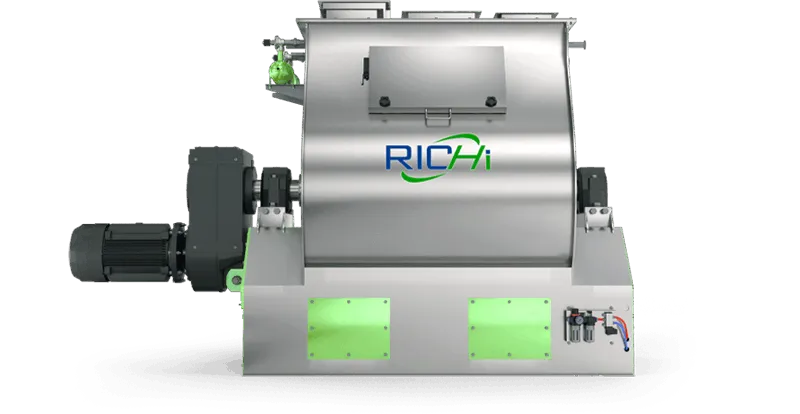
fertilizer mixing machine

fertilizer coating machine

fertilizer packaging machine
Multi-Raw Material Fertilizer Granulation Solutions
The best type of fertilizer granulation equipment will depend on your application and operations. Our fertilizer granulation equipment is engineered to process a diverse range of raw materials with exceptional adaptability, including organic waste such as livestock manure, crop residues, and food processing byproducts, chemical-based NPK formulations with precise nutrient ratios, and hybrid organic-compound blends that combine both material types.

Agricultural waste fertilizer granulator •

Municipal waste fertilizer granulator •

Food waste fertilizer granulator •
Fertilizer Granulator Machine Models Selection Guide
Richi Machinery is the most competitive fertilizer granulation equipment brand with the most complete product varieties and series. Our knowledgeable team members are ready to help you find the perfect equipment from our selection of RICHI-made Fertilizer Machines.
FZLH250
Capacity: 1-1.5 T/H
Because of the way these fertilizer pellet machines are designed, the materials are easily compressed into a pellet size, saving time, effort and money on the job site.
FZLH320
Capacity: 2-3 T/H
All manure pellet mill types for your granulation needs. It uses top fertilizer technology, featuring low noise and excellent production efficiency.
FZLH350
Capacity: 3-5 T/H
With its heavy-duty components yet suitable size, compost pellet making machines made by RICHI MACHINERY are suitable for an array of applications.
FZLH420
Capacity: 6-8 T/H
No matter which type of organic fertilizer pellet mill you go with, these high efficiency pelletizers can enhance your job site capabilities and efficiency.
FZLH520
Capacity: 9-12 T/H
If you are experienced in the world of fertilizer pellet production, then you are likely well aware of organic fertilizer manure making machines and what they can do for a project.
FZLH678
Capacity: 18-22 T/H
Compost granulating machines are the primary and most prevalent type of fertilizer machinery used to pelletize fertilizer, are commonly found on organic fertilizer factory projects.
Technical Specifications Overview
To help you compare our core fertilizer granulator equipment models, here is a detailed technical parameter table highlighting key performance data for each machine. This overview provides essential information on capacity, power requirements, and granule output to assist in selecting the ideal equipment for your production needs.
| Model | FZLH250 | FZLH320 | FZLH350 | FZLH420 | FZLH520 | FZLH678 | FZLH768 |
| Main motor power (kw) | 22 | 22 | 37 | 90 | 132 | 185 | 250 |
| Power of arch breaking feeder (kw) | 2.2 | 2.2 | 2.2 | 3 | 3 | 3 | 4 |
| Forced feeder power (kw) | 0.75 | 0.75 | 0.75 | 1.5 | 1.5 | 1.5 | 1.5 |
| Finished pellet diameter (mm) | 4~12 | ||||||
| Production capacity (T/H) | 1-1.5 | 2-3 | 3-5 | 6-8 | 9-12 | 18-22 | 22-26 |
While fertilizer granulator equipment form the heart of any fertilizer production line, achieving optimal results requires perfectly integrated support equipment. We design and manufacture the complete ecosystem of processing machinery that transforms raw materials into market-ready products. Each auxiliary unit is engineered to seamlessly connect with our granulation equipment, creating a cohesive production flow that minimizes bottlenecks and maximizes output.

Complete Line Support Equipment
We don’t just sell equipment – we analyze your entire production process to recommend the optimal configuration of supporting machinery.
Richi Machinery’s fertilizer granulator equipment operates successfully in diverse conditions worldwide. Our systems consistently deliver results across different raw materials, climate challenges, and production requirements.
From organic waste recycling to precision NPK production, we’ve helped clients achieve their production goals on every continent. This global experience means we understand how to adapt equipment to your specific regional needs and operational challenges. Let us demonstrate how our international expertise can work for your operation.
Global Granulation Success


fertilizer granulator equipment in Asia
Asian operations demonstrate our ability to scale from small farm installations to industrial-level production, processing diverse materials from rice husks to aquaculture waste.
Across South America’s diverse agricultural sectors, our granulation systems are processing everything from coffee processing waste in Colombia to soybean-based organic fertilizers in Argentina.

fertilizer granulator equipment in South America

fertilizer granulator equipment in Oceania
Throughout Australia and New Zealand, our systems are designed to address unique regional challenges including water conservation and remote operation capabilities.
Our African projects focus on robust, low-maintenance designs that deliver reliability in challenging operating conditions.

fertilizer granulator equipment in Africa


fertilizer granulator equipment in North America
Our North American installations range from large-scale commercial fertilizer plants to innovative organic waste recycling facilities.
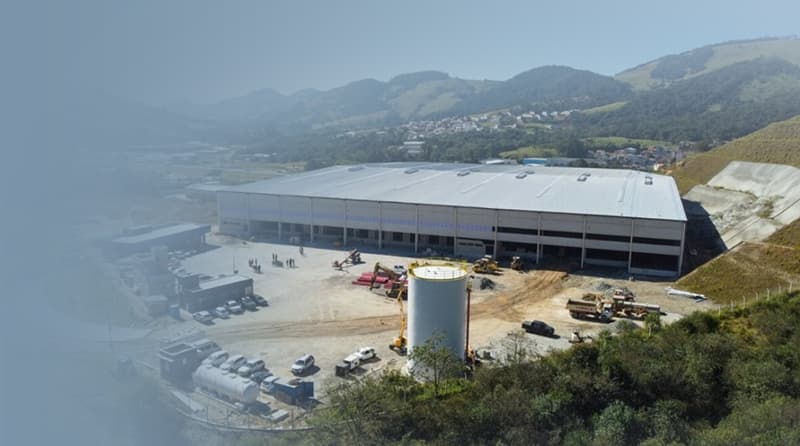
fertilizer granulator equipment in Europe
European installations emphasize precision engineering and environmental compliance, with advanced emission control systems and energy recovery features.
1-1.5 t/h small scale organic fertilizer plant
2-3 t/h organic fertilizer processing plant
3-5 t/h organic fertilizer production plant
6-8 t/h organic fertilizer manufacturing plant
9-12 t/h organic manure production plant
18-22 t/h organic fertilizer factory
1-40 t/h npk compound fertilizer production line
1-60 t/h compost manufacturing plant
Solutions by Material Type
Not all materials process the same way, and our specialized lines reflect decades of material-specific engineering. We provide distinct configurations for organic materials like manure and crop residues, NPK chemical formulations, and hybrid organic-compound blends.
Each system incorporates tailored preprocessing, granulation, and finishing steps that address the unique characteristics of your raw materials – whether dealing with high-moisture organic waste or precision-blended mineral powders. This material-focused approach ensures higher yields, better granule quality, and more efficient operation for your specific production needs.
60000 +
Backed by a 60,000 m² advanced production complex
140 +
Global footprint extends across 140+ international markets
2000 +
Over 2,000 successful feed production system installations
2013
RICHI MANUFACTURE
Established in 1995, RICHI MACHINERY has grown from a medium-sized enterprise to become China’s largest pellet production line manufacturer. With two major manufacturing bases spanning hundreds of thousands of square meters, we specialize in custom pellet machines and complete plant solutions, handling every production stage in-house—from R&D to delivery.
Our vertically integrated facilities (including dedicated sections for production, testing, and logistics) ensure premium quality, environmental responsibility, and operational reliability for feed, biomass, and fertilizer industries worldwide. For nearly three decades, we’ve partnered with clients to enhance productivity, minimize risks, and achieve sustainable outcomes through innovative engineering.
Zhengzhou Headquarters
R&D, global operations and strategic management converge

Jiaozuo New Production Base (2025)
Featuring automated production lines and Industry 4.0 technologies

Kaifeng Original Complex (Since 1995)
Our manufacturing legacy began and quality traditions endure
Certifications & Patents
As a world-leading fertilizer granulator equipment manufacturer, RICHI Machinery demonstrates its engineering prowess through internationally recognized certifications and proprietary innovations.
Our ISO quality management system, CE compliance, BV-certified production processes, GOST-R for Russian compliance, ATEX explosion-proof certification for EU safety standards, FDA registration for U.S. market access, and EHEDG hygienic design certification validate our commitment to global standards, while 50+ patented technologies in pellet mills, granulators, Crusher, mixer, dryer, turner and automation systems deliver unmatched performance.

When it comes to the top company offering the best fertilizer granulation equipment for sale, Richi Machinery is known for its superior quality, cutting edge technology and superior customer service. We can supply all of your fertilizer pelleting needs – From single fertilizer granulator machine to the fertilizer production line designs in the world.
With high-quality equipment materials and components, our customers have negligible maintenance and operational costs. Plus, our unmatched support and in-person training allow you to be confident in your new equipment.

01
Consultation
Our experts provide professional advice to understand your specific fertilizerd production requirements.

02
Design
We develop customized solutions with optimized layouts and equipment configurations for your project.

03
Manufacturing
All fertilizer granulator equipment is precision-built using quality materials in our ISO-certified factories.

04
Shipping
We handle secure packaging and global logistics with reliable delivery timelines.

05
Installation
Our engineers supervise on-site assembly and commissioning for smooth operation.

06
Training
Comprehensive operator instruction ensures proper use and maintenance of equipment.

07
After-sales
Dedicated support team provides troubleshooting and technical assistance.
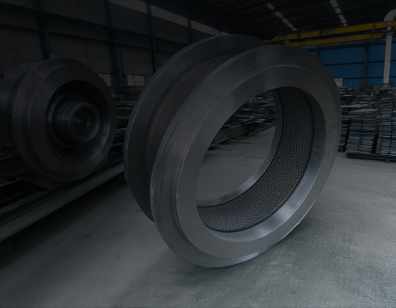
08
Spare Parts
Genuine components are available worldwide with fast delivery service.
ertilizer Granulator Equipment FAQs
This section addresses the most common technical and operational questions about fertilizer granulation equipment, drawing from Richi Machinery’s extensive expertise in organic, NPK, and compound fertilizer production. Whether you’re exploring raw material adaptability, process efficiency, or equipment customization, these answers provide clear, professional insights to help you optimize your fertilizer manufacturing operations and make informed decisions about your granulation needs.
How to set up fertilizer granulation plant ?
+
At present, many countries are vigorously promoting organic fertilizers in order to accelerate the green development of agriculture. Organic fertilizers can not only provide comprehensive nutrition for crops, but also have long-lasting fertilizer effects.
They can increase and renew soil organic matter, promote microbial reproduction, and improve the physical and chemical properties and biological activity of soil. They are the main nutrients for green food production.
RICHI Machinery is committed to developing organic fertilizer solutions, we can customize the solution to suit your particular application.
When building an organic fertilizer plant, you need to consider the following aspects:
- Market research: Through market research, the positioning and price of organic fertilizer products can be determined, and the potential of the sales market can be predicted.
- Site selection: When choosing a suitable site for building an organic fertilizer plant, you need to consider factors such as site rental, transportation conditions, water resources, environmental protection requirements, and safety requirements.
- Equipment selection: When selecting equipment, factors such as production capacity, process flow, equipment quality, and after-sales service need to be considered. At the same time, it is also necessary to design appropriate workshops and facilities based on equipment and production needs.
- Raw material: When purchasing raw materials, you need to consider factors such as raw material quality, price, transportation distance, purchase volume, etc., and establish long-term cooperative relationships with suppliers.
- Fund: In the early stage, funds need to be raised through various channels, such as self-raised funds, bank loans, government subsidies, etc.
- Relevant procedures: Before building an organic fertilizer plant, relevant procedures need to be completed, such as industrial and commercial registration, tax registration, environmental protection approval, etc.
01
What is a fertilizer granulator equipment?
+
Fertilizer granulation equipment is an industrial machine system designed to transform powdered, crushed, or mixed raw materials into uniform, dense granules. At Richi Machinery, we specialize in advanced ring die granulator systems that produce premium-quality fertilizer pellets with precise size, hardness, and nutrient consistency.
Our fertilizer granulator machines serve multiple production needs:
- For organic fertilizer granulation, we process composted manure, crop straw, and other bio-wastes into slow-release organic granules.
- For NPK fertilizer production, our systems blend and granulate chemical compounds with micronutrients.
- For organic-compound fertilizers, we combine organic matter with NPK components in optimized ratios.
- For BB fertilizer systems, we ensure homogeneous mixing of urea, DAP, potassium chloride, and other raw materials.
Unlike conventional granulators, Richi Machinery’s ring die granulation equipment offers distinct advantages:
- Superior Granule Quality: Produces smooth, uniform pellets (2-8mm) with high crushing strength (>10N) to minimize dust and breakage during handling.
- Material Flexibility: Handles diverse inputs – from moist organic compost to dry NPK powder blends – without requiring binders in most cases.
- Energy Efficiency: Our patented ring die design reduces power consumption by 15-20% compared to flat die or rotary drum granulators.
- Low Maintenance: Heavy-duty construction with wear-resistant alloy dies ensures 3,000+ hours of continuous operation between replacements.
With 25 years of field experience, Richi Machinery has deployed fertilizer granule making machines in 300+ plants worldwide. Our engineering team provides complete solutions – from material testing and recipe development to production line layout and after-sales support.
Whether you need a compact organic granular fertilizer making machine for farm use or a large-scale fertilizer plant system, we customize each granulator’s parameters (die hole size, roller pressure, moisture control) to your specific materials and output requirements.
For operations prioritizing nutrient precision and production efficiency, our fertilizer granulation equipment represents the industry benchmark. Contact us to discuss your project specifications or request material trial testing at our facility.
02
What is the price range for fertilizer granulator machines?
+
At Richi Machinery, we specialize in manufacturing high-performance ring die fertilizer granulation equipment with capacities ranging from 1-22 tons per hour. With 25+ years of industry expertise and over 300 successful global installations, we provide reliable granulators that combine competitive pricing with exceptional quality and performance.
Standard Models & Pricing for Our Ring Die Fertilizer Granulator Machines:
| Model | Capacity (T/H) | Power (KW) | Ring Die Size (mm) | Price Range (USD) | Best For Application |
|---|---|---|---|---|---|
| FZLH250 | 1-2 | 22 | Ø250 | $12,000-$15,000 | Small farms processing organic fertilizer from manure/compost |
| FZLH320 | 2-3 | 22 | Ø320 | $14,000-$16,000 | Medium-scale organic granular fertilizer production |
| FZLH350 | 3-5 | 37 | Ø350 | $19,000-$21,000 | Both organic and NPK fertilizer manufacturing |
| FZLH420 | 6-8 | 90 | Ø420 | $28,000-$30,000 | Professional fertilizer plant operations |
| FZLH520 | 9-12 | 132 | Ø520 | $44,000-$46,000 | Large-scale compound fertilizer production |
| FZLH678 | 18-22 | 185 | Ø673 | $66,000-$68,000 | Industrial-scale fertilizer manufacturing facilities |
Key Factors Affecting Equipment Pricing:
- Material Versatility: Our granulators expertly process various materials including livestock manure, agricultural waste, NPK formulations, and organic-compound blends
- Energy-Saving Design: Innovative ring die technology reduces power consumption by 15-20% compared to traditional granulators
- Robust Construction: Premium alloy components and heavy-duty design ensure extended operational life
- Customization Options: Available modifications include die hole specifications, moisture control systems, and specialized configurations
For complete fertilizer production line solutions (incorporating preprocessing, mixing, granulating, drying, cooling, and packaging systems), our engineering team provides:
- Complimentary equipment selection consultation based on your specific materials and output requirements
- Pre-shipment factory testing and validation
- Comprehensive installation support and operator training programs
- Ongoing technical support throughout equipment lifespan
All Richi Machinery fertilizer granulator equipment includes:
- 12-month warranty on core components
- Guaranteed access to genuine spare parts
- 24/7 remote technical assistance
For a customized quotation and expert guidance in selecting the optimal fertilizer granulation solution for your operation, contact Richi Machinery today. Our specialists will help you identify the most efficient and cost-effective equipment configuration for your production needs.
03
What types of fertilizer granulators do you offer?
+
Richi Machinery provides comprehensive fertilizer granulation solutions designed to handle virtually any raw material in the fertilizer production industry. With our 25+ years of engineering expertise and 300+ successful installations worldwide, we’ve developed specialized granulation systems for every production need.
Our Core Fertilizer Granulator Equipment Range:
- Organic Fertilizer Granulator Machines
- Specifically engineered for processing animal manure (poultry/cattle/swine), agricultural waste (straw/compost), and other organic materials
- Features our advanced ring die technology that ensures high granulation rate (≥95%) and uniform particle size (2-8mm)
- Includes specialized models for both small-scale farm operations and large commercial organic fertilizer plants
- NPK Compound Fertilizer Granulators
- Designed for precise blending and granulation of nitrogen, phosphorus, potassium and micronutrients
- Capable of processing various formulations (15-15-15, 17-17-17, etc.) with consistent nutrient distribution
- Our ring die systems maintain low moisture content (<5%) for superior granule hardness
- Organic-Compound Fertilizer Granulation Systems
- Hybrid solutions that combine organic matter with chemical nutrients
- Perfect for producing enhanced-efficiency fertilizers with both immediate and slow-release properties
- Customizable NPK:organic ratio to meet specific crop requirements
- BB Fertilizer (Bulk Blend) Equipment
- Complete systems for mixing prilled urea, DAP, MOP and other raw materials
- Special anti-segregation design ensures uniform nutrient distribution
- Available in batch or continuous processing configurations
Material Adaptability:
Our fertilizer granule making machines can process:
- All types of animal manure (fresh or composted)
- Crop residues and green waste
- Various NPK formulations
- Industrial byproducts suitable for fertilizer production
- Custom organic-inorganic blends
Technical Advantages of Richi Machinery Granulators:
- Ring die systems offer 20-30% higher output than conventional granulators
- Minimal binder requirements due to optimized pressure design
- Energy-efficient operation with power savings up to 15%
- Heavy-duty construction for 10,000+ hours of continuous operation
- Customizable die specifications for different granule sizes (1-10mm)
For operations requiring complete production lines, we provide integrated solutions including:
- Raw material pretreatment systems
- Precision mixing equipment
- Granulation units
- Drying & cooling systems
- Screening and packaging machines
All our fertilizer granulator machines for sale come with:
- Factory-direct pricing (no middleman markup)
- On-site installation supervision
- Operator training programs
- Lifetime technical support
With 300+ reference plants across 40+ countries, Richi Machinery has the practical experience to recommend the optimal granulation solution for your specific materials and production goals. Contact our engineering team today for a customized equipment proposal.
04
What’s the difference between organic and compound fertilizer granulation ?
+
At Richi Machinery, with our 25 years of experience manufacturing fertilizer granulation equipment and completing over 300 successful projects globally, we’ve developed deep expertise in both organic and compound fertilizer production processes. Here’s a detailed comparison:
1. Raw Material Differences
Organic Fertilizer Granulation:
- Uses biological materials including:
- Animal manure (poultry, cattle, swine)
- Agricultural waste (straw, husks, compost)
- Food processing byproducts
- Municipal green waste
- Requires thorough fermentation (15-30 days) before granulation
- Natural binders like lignin or plant starches may be used
Compound Fertilizer Granulation:
- Utilizes chemical components:
- Nitrogen sources (urea, ammonium nitrate)
- Phosphates (DAP, MAP, SSP)
- Potassium (MOP, SOP)
- Micronutrients (Zn, Fe, B, etc.)
- May use chemical binders or rely on salt bridges
- Precise formula control is critical
2. Granulation Process Variations
Organic Fertilizer Granulator Machine:
- Typically uses ring die or rotary drum systems
- Operates at lower temperatures (50-70°C)
- Handles higher moisture content (25-35%)
- Produces softer granules (5-15N hardness)
NPK Fertilizer Granulator:
- Primarily employs ring die or double roller systems
- Requires higher pressure and temperature
- Processes drier materials (moisture <8%)
- Creates harder granules (15-30N hardness)
3. Equipment Design Distinctions
Our organic granular fertilizer making machines feature:
- Corrosion-resistant materials
- Larger die holes for fibrous materials
- Adjustable moisture control systems
- Specialized mixing chambers
For compound fertilizer granulator machines, we incorporate:
- Precision dosing systems
- Intensive mixers
- Temperature-controlled zones
- Anti-caking technology
4. End Product Characteristics
Organic Fertilizer Granules:
- Irregular surface texture
- Darker coloration
- Variable nutrient content (typically 3-8% NPK)
- Slow-release properties
Compound Fertilizer Granules:
- Smooth, uniform appearance
- Light-colored (usually white or grey)
- Precise nutrient content (e.g., 15-15-15)
- Immediate nutrient availability
5. Production Line Configuration
Complete organic fertilizer plants require:
- Fermentation systems
- Crushing equipment
- Bio-stabilization units
- Specialized drying solutions
NPK fertilizer production lines need:
- Raw material storage bins
- Precision weighing systems
- Chemical mixing equipment
- Advanced cooling systems
Richi Machinery designs customized fertilizer granulation equipment for both processes, with key advantages:
- Ring die technology ensuring 95%+ granulation rate
- Energy-efficient designs saving 15-20% power
- Durable construction for 10,000+ hour lifespan
- Flexible configurations for any production scale
Whether you need an organic fertilizer granulator machine for farm waste recycling or a high-capacity NPK fertilizer granulator for commercial production, our engineering team can recommend the optimal solution based on your specific materials, capacity requirements, and product goals. Contact us today for a professional consultation.
05
Can Your fertilizer Granulators Handle Wet or Dry Materials?
+
At Richi Machinery, our fertilizer granulation equipment is engineered to process both wet and dry materials efficiently, ensuring optimal granule quality across various fertilizer types. Here’s how our systems adapt to different moisture conditions:
1. Wet Granulation for Sticky or High-Moisture Materials
Our organic fertilizer granulator machines excel in processing wet, sticky inputs such as:
- Fresh or composted manure (poultry, cattle, swine)
- Agricultural waste (straw, green compost, food byproducts)
- High-moisture organic blends (up to 30-35% moisture content)
Key Features for Wet Granulation:
- Ring die granulator design with reinforced extrusion pressure to bind moist particles without clogging.
- Adjustable moisture control—compatible with liquid binders (optional) for better pellet formation.
- Post-granulation drying & cooling integration to stabilize granules for storage.
2. Dry Granulation for Powdered or Low-Moisture Materials
Our NPK fertilizer granulators and BB fertilizer blending systems are optimized for dry materials, including:
- NPK powder mixes (urea, DAP, potassium chloride)
- Mineral micronutrients (zinc, boron, iron powders)
- Pre-dried organic compounds (for organic-NPK blends)
Key Features for Dry Granulation:
- High-pressure ring die system compresses dry powders into dense, dust-free granules without added water.
- Precision mixing ensures uniform nutrient distribution before granulation.
- Anti-caking technology prevents re-powdering during storage.
Hybrid Solutions for Variable Materials
For operations processing both wet and dry inputs (e.g., organic-compound fertilizers), our flexible granulation systems allow:
- Adjustable processing parameters (pressure, temperature, die size) to switch between material types.
- Inline moisture sensors to auto-adjust granulation conditions.
Why Choose Richi Machinery’s Granulation Equipment?
- Material-specific designs: Customized ring die holes, roller pressure, and auger speeds for optimal results.
- Minimal binder use: Our mechanical granulation reduces dependency on chemical binders.
- Low maintenance: Robust construction handles abrasive materials (e.g., manure, mineral powders) with extended wear life.
Need a Granulator for Your Specific Material?
→ Contact us to test your raw materials in our facility and receive a tailored granulation solution.
06
What’s the capacity range of your fertilizer granulation equipment?
+
Richi Machinery offers a complete range of fertilizer granulator machines to meet diverse production needs, from small farm operations to large-scale commercial fertilizer plants. Our ring die granulation systems are available in multiple configurations with varying throughput capacities:
Standard Capacity Ranges:
- Compact Granulation Lines (1-5 T/H)
- Ideal for:
- Small organic fertilizer producers
- Farm-based manure recycling operations
- Pilot plants and research facilities
- Typical applications:
- Converting livestock manure into organic granules
- Processing agricultural waste into premium fertilizers
- Small batch specialty fertilizer production
- Ideal for:
- Mid-Scale Production (5-15 T/H)
- Suitable for:
- Regional organic fertilizer manufacturers
- Medium NPK compound fertilizer plants
- Municipal waste recycling facilities
- Common uses:
- Commercial organic fertilizer production
- Custom NPK formulations
- Organic-compound fertilizer manufacturing
- Suitable for:
- Industrial-Scale Systems (15-30 T/H)
- Designed for:
- Large commercial fertilizer plants
- Government agricultural projects
- Export-oriented fertilizer production
- Typical configurations:
- Complete NPK granulation lines
- High-volume organic fertilizer plants
- Bulk blending fertilizer systems
- Designed for:
- Heavy-Duty Production (30-60 T/H)
- Engineered for:
- Multinational fertilizer corporations
- National agricultural programs
- Large-scale organic waste recyclers
- System features:
- Fully automated control
- Continuous processing capability
- Integrated quality control systems
- Engineered for:
Key Technical Specifications:
- Organic fertilizer granulator machines:
- Capacity: 1-30 T/H
- Moisture tolerance: 20-35%
- Granule size: 2-8mm adjustable
- NPK fertilizer granulators:
- Capacity: 1-60 T/H
- Moisture content: <8%
- Granule hardness: >15N
- Bulk blending systems:
- Capacity: 1-50 T/H
- Mixing uniformity: >95%
- Anti-segregation design
Custom Capacity Solutions:
We understand that every fertilizer production requirement is unique. Our engineering team can design:
- Specialized granulation systems for unusual material characteristics
- Hybrid configurations for combined organic/NPK production
- Modular systems for future capacity expansion
- Customized granule specifications (size, density, hardness)
Factors Affecting Capacity Selection:
- Raw material characteristics (moisture, texture, composition)
- Desired granule specifications (size, shape, density)
- Available production space and layout
- Power supply and utility considerations
- Future expansion requirements
For precise capacity recommendations, we offer:
- Material testing and analysis
- Production simulation
- Factory acceptance trials
- Process optimization consulting
All Richi Machinery fertilizer granulation equipment features:
- Robust ring die construction for consistent performance
- Energy-efficient operation
- Minimal maintenance requirements
- Long service life
To determine the ideal capacity for your specific needs, contact our technical team for a detailed evaluation and equipment proposal. We’ll help you select the perfect fertilizer granule making machine configuration to match your production goals and operational requirements.
07
What raw materials can be used for organic fertilizer granulation?
+
Richi Machinery’s organic fertilizer granulator machines are engineered to process a wide variety of organic materials into high-quality fertilizer granules. Our ring die granulation systems can effectively transform numerous organic waste streams into valuable, nutrient-rich fertilizers.
Primary Raw Material Categories:
- Animal Manures
- Poultry manure (chicken, duck, turkey)
- Livestock waste (cattle, pig, sheep)
- Horse stable bedding
- Rabbit and other small animal droppings
- Agricultural Residues
- Crop straw (rice, wheat, corn)
- Husk and shell materials (peanut, coconut)
- Spent mushroom substrate
- Pruned orchard and vineyard waste
- Food Processing Byproducts
- Fruit and vegetable waste
- Brewery and distillery grains
- Coffee grounds and tea waste
- Oilseed meal residues
- Municipal and Industrial Organics
- Composted green waste
- Sewage sludge (properly treated)
- Food service organics
- Biodegradable packaging materials
- Specialty Additives
- Seaweed and aquatic plants
- Fish processing waste
- Biochar and wood ash
- Beneficial microbial inoculants
Material Preparation Requirements:
For optimal granulation in our organic fertilizer granulator machines:
- Moisture content should be adjusted to 25-35%
- Particle size reduced to <5mm through crushing
- Proper composting completed (for raw manures)
- Carbon-nitrogen ratio balanced (25-30:1 ideal)
Technical Considerations for Different Materials:
- Fibrous materials (straw, husks): Require additional crushing and moisture adjustment
- High-nitrogen materials (poultry manure): May need carbon-rich bulking agents
- Sticky substances (food waste): Benefit from absorbent additives
- Low-nutrient materials (wood waste): Often blended with nutrient-dense components
Our fertilizer granulation equipment features specialized adaptations for challenging materials:
- Reinforced ring die designs for abrasive mixtures
- Variable compression settings for different material densities
- Adjustable moisture control systems
- Wear-resistant components for long service life
End Product Applications:
Depending on input materials, our organic granular fertilizer making machine can produce:
- General-purpose organic fertilizers
- Specialty crop formulations
- Soil conditioners and amendments
- Biofertilizer carriers
- Organic-mineral blended products
For operations handling multiple material streams, we offer:
- Customized material blending systems
- Pre-processing equipment (shredders, mixers)
- Moisture adjustment technology
- Quality control instrumentation
Material Testing and Optimization:
We provide:
- Laboratory-scale material evaluation
- Pilot-scale granulation trials
- Process parameter optimization
- Recipe development assistance
All Richi Machinery organic fertilizer production systems are designed for:
- Consistent granule quality
- Efficient material utilization
- Low energy consumption
- Easy operation and maintenance
To determine the best granulation solution for your specific raw materials, contact our technical team for a comprehensive evaluation and equipment recommendation. We’ll help you transform your organic waste streams into valuable fertilizer products.
08
Do I need a fermentation process before granulation?
+
For most organic materials, proper fermentation is indeed a critical pretreatment step before granulation in fertilizer production systems. At Richi Machinery, we’ve developed specialized solutions to optimize this essential process for superior granule quality and safety.
Why Fermentation Matters:
- Pathogen Elimination
- Destroys harmful bacteria (E. coli, Salmonella)
- Reduces parasite eggs and weed seeds
- Makes manure and waste products safe for agricultural use
- Material Transformation
- Breaks down complex organic compounds
- Stabilizes nutrient content
- Reduces phytotoxicity risks
- Improves material uniformity for granulation
- Process Optimization
- Adjusts moisture to ideal granulation levels (25-35%)
- Develops natural binding properties
- Reduces odor issues in final product
- Enhances granule structure and durability
Our Complete Fermentation Solutions:
Richi Machinery provides integrated fermentation systems specifically designed to work with our organic fertilizer granulator machines:
- Windrow Turners
- Crawler type for large-scale operations
- Wheel type for medium facilities
- Hydraulic lifting models for space constraints
- In-Vessel Fermenters
- Fully enclosed systems
- Temperature and aeration control
- 7-15 day processing time
- Continuous feed options
- Ancillary Equipment
- Moisture adjustment systems
- Aeration control technology
- Temperature monitoring
- Deodorizing components
Technical Specifications:
- Processing capacity: 1-500 tons/day
- Fermentation cycle: 15-30 days (ambient) or 7-15 days (accelerated)
- Temperature range: 55-75°C for pathogen kill
- Turning frequency: 1-3 times weekly
Material-Specific Recommendations:
- Animal Manures
- Minimum 25-day fermentation
- Requires regular turning
- Carbon supplementation often needed
- Crop Residues
- 15-20 day process
- Moisture critical (50-60% ideal)
- Particle size reduction beneficial
- Food Wastes
- 20-30 day stabilization
- Bulking agents required
- Frequent turning recommended
Integrated System Advantages:
When combining our fermentation equipment with Richi Machinery’s organic fertilizer granulation equipment:
- Consistent material quality for granulation
- Optimized moisture content
- Improved granule formation
- Higher nutrient retention
- Better product stability
Custom Configuration Options:
We design fermentation systems based on:
- Available raw materials
- Site conditions
- Production scale
- Climate factors
- End product requirements
Post-Fermentation Processing:
Our complete lines include:
- Crushing systems for fermented material
- Precision mixing equipment
- Moisture adjustment technology
- Granulation preparation systems
For operations seeking turnkey solutions, Richi Machinery provides:
- Complete facility layout design
- Equipment selection and integration
- Process optimization consulting
- Operator training programs
Technical Support Services:
- Fermentation recipe development
- Process parameter optimization
- Quality control protocols
- Troubleshooting assistance
To determine the ideal fermentation solution for your organic fertilizer granulator machine setup, contact our engineering team for a detailed evaluation of your materials and production requirements. We’ll help you develop the most efficient and effective pretreatment system for your specific needs.
09
Which fertilizer granulator equipment is best for organic fertilizer?
+
After extensive technical evaluation and field testing across numerous organic fertilizer applications, Richi Machinery confirms that the ring die granulator stands as the superior choice for organic fertilizer production. Here’s why this specific fertilizer granulation equipment outperforms other alternatives:
Technical Advantages of Ring Die Granulators for Organic Materials:
- Superior Material Adaptation
- Handles high-moisture organic matter (25-35% optimal)
- Processes fibrous materials (straw, manure) without clogging
- Accommodates variable particle sizes in feedstock
- Enhanced Granule Quality
- Produces uniform spherical granules (2-8mm adjustable)
- Achieves higher granule density (1.2-1.5g/cm³)
- Delivers superior crushing strength (>10N)
- Process Efficiency Benefits
- Higher yield rates (95%+ granulation efficiency)
- Lower energy consumption per ton output
- Continuous operation capability
Comparative Analysis Against Other Granulator Types:
- Versus Disc Granulators
- Higher production capacity (30%+ greater throughput)
- Better granule uniformity (±0.5mm size variation)
- Lower binder requirements
- Versus Flat Die Granulators
- Greater die longevity (3,000+ operating hours)
- More consistent pressure application
- Easier maintenance access
- Versus Rotary Drum Granulators
- Smaller footprint for equivalent capacity
- Precise moisture control
- Reduced dust generation
Key Design Features of Our Organic Fertilizer Granulator Machines:
- Specialized Ring Die Configuration
- Larger die holes for organic materials
- Reinforced alloy steel construction
- Optimized L/D ratio for organic compounds
- Advanced Pressure System
- Adjustable roller pressure (50-100kN)
- Balanced compression across material flow
- Wear-compensation mechanism
- Material-Specific Modifications
- Anti-corrosion treatment for acidic organics
- Reinforced scrapers for sticky materials
- Special discharge mechanisms for light granules
Application-Specific Performance Data:
- Animal Manure Processing
- Throughput: 3-8% higher than alternatives
- Granule stability: 15% improved
- Moisture tolerance: up to 38%
- Crop Residue Granulation
- Fiber handling: 50mm max length
- Binder reduction: 20-30% less required
- Energy efficiency: 0.8-1.2kWh/ton
- Food Waste Conversion
- Odor control: integrated deodorizing
- Contaminant tolerance: 5-8% inert materials
- Nutrient retention: 95%+ preservation
Complete System Integration:
Our ring die organic fertilizer granulator machines seamlessly integrate with:
- Pre-processing systems (crushers, mixers)
- Post-granulation equipment (dryers, coolers)
- Quality control components (screeners, coaters)
- Packaging automation
Customization Options Available:
- Die hole size configuration (2-10mm)
- Throughput capacity adjustment
- Special material handling adaptations
- Automation level selection
Operational Benefits:
- 30% lower maintenance requirements
- 20% faster die changeout
- Simplified operator training
- Reduced spare parts inventory
For operations seeking the most reliable and efficient organic fertilizer granule making machine, Richi Machinery’s ring die granulators deliver unmatched performance across all critical parameters. Contact our engineering team to discuss your specific organic material characteristics and production requirements for a tailored equipment recommendation.
10
Can your organic fertilizer production line include crushing and mixing?
+
Absolutely. At Richi Machinery, we design and manufacture complete organic fertilizer production lines that integrate all essential processing stages – from raw material preparation to final packaging. Our systems are engineered to handle the unique challenges of organic material processing while maximizing efficiency and output quality.
Complete Line Configuration Options:
- Pre-processing Stage
- Heavy-duty crushers for:
- Breaking down compost clumps
- Reducing straw and fibrous materials
- Processing hardened manure cakes
- Specialized mixers for:
- Homogenizing diverse organic materials
- Precise additive incorporation
- Moisture content adjustment
- Heavy-duty crushers for:
- Granulation Stage
- Ring die granulators specifically designed for:
- Variable organic material densities
- High-moisture content processing
- Fiber-rich composition handling
- Ring die granulators specifically designed for:
- Post-granulation Processing
- Efficient drying systems:
- Low-temperature preservation of nutrients
- Moisture reduction to <15%
- Odor control integration
- Precision cooling:
- Granule stabilization
- Preparation for coating
- Screening and recycling:
- Size classification
- Oversize material recirculation
- Efficient drying systems:
Technical Highlights of Our Integrated Systems:
- Material-Specific Engineering
- Crushers with adjustable rotor speeds (18-55 rpm)
- Mixers with paddle configurations for sticky organics
- Granulators with reinforced die designs
- Process Optimization Features
- Moisture control throughout all stages
- Dust suppression systems
- Continuous flow design
- Automated process monitoring
- Capacity Matching
- Component sizing for balanced throughput
- Buffer zones between stages
- Production rate synchronization
Customization Options:
- For Diverse Organic Inputs
- Special crusher configurations for:
- Palm waste and coco peat
- Mushroom substrate
- Aquaculture waste
- Special crusher configurations for:
- For Specific Product Requirements
- Mixer adaptations for:
- Microbial inoculant addition
- Mineral supplementation
- Binder incorporation
- Mixer adaptations for:
- For Space Constraints
- Compact line layouts
- Vertical design options
- Modular system configurations
Quality Control Integration:
Our complete lines can include:
- Online moisture detection
- Granule strength testing
- Nutrient content monitoring
- Automated weight control
Operational Advantages:
- Single-source responsibility
- Unified control system
- Matching equipment capacities
- Streamlined maintenance
Complete Line Capacities Available:
- Small-scale: 1-3 tons/hour
- Medium-scale: 3-10 tons/hour
- Large-scale: 10-30 tons/hour
- Industrial: 30+ tons/hour
Additional Optional Components:
- Automatic batching systems
- Fermentation turners
- Coating drums
- Packaging automation
- Palletizing systems
For operations seeking a truly optimized organic fertilizer granule making machine system, our complete line solutions ensure:
- Consistent product quality
- Maximized nutrient retention
- Efficient energy use
- Reliable continuous operation
To discuss your specific organic fertilizer production needs and receive a customized complete line proposal, contact Richi Machinery’s engineering team today. We’ll analyze your raw materials, production goals, and site conditions to recommend the perfect integrated system configuration.
11
How do you control moisture in organic granules?
+
Effective moisture control is critical in organic fertilizer production, and Richi Machinery has developed specialized drying solutions that integrate seamlessly with our fertilizer granulation equipment. Our systems precisely regulate moisture content while preserving the valuable nutrients in organic materials.
Multi-Stage Moisture Management System:
- Pre-Granulation Moisture Control
- Fermentation monitoring to achieve ideal starting moisture (30-40%)
- Adjustable mixing systems for precise water/binder addition
- Moisture sensors with real-time feedback to mixing process
- In-Line Drying Technology
- Counter-flow rotary dryers with indirect heating options
- Temperature range: 60-120°C (adjustable for material sensitivity)
- Residence time control: 15-45 minutes
- Moisture reduction from 30-35% down to 12-15%
- Post-Drying Stabilization
- Fluidized bed coolers to set granule structure
- Equilibrium moisture adjustment chambers
- Final moisture verification sensors
Technical Specifications of Our Organic Fertilizer Drying Systems:
- Capacity Range: 1-30 tons/hour
- Heat Sources: Biomass, gas, steam, or electric
- Thermal Efficiency: 75-85%
- Moisture Reduction: Typically 18-22% absolute reduction
- Energy Consumption: 80-120kWh/ton water evaporated
Key Advantages of Our Moisture Control Approach:
- Nutrient Preservation
- Low-temperature zones for heat-sensitive organics
- Short exposure times to minimize nutrient loss
- Antioxidant protection in drying atmosphere
- Granule Quality Maintenance
- Minimized cracking and breakage
- Uniform drying across all granule sizes
- Surface polishing effect for better flowability
- System Integration Benefits
- Continuous moisture monitoring
- Automatic feedback to dryer controls
- Linked with granulator for process adjustment
Material-Specific Drying Solutions:
- For Animal Manure-Based Granules
- Higher temperature zones (90-120°C)
- Enhanced odor control systems
- Anti-caking agent injection
- For Plant Waste Granules
- Moderate temperatures (70-90°C)
- Longer retention times
- Gentle tumbling action
- For Mixed Organic Granules
- Zoned temperature control
- Adjustable flight patterns
- Moisture balancing technology
Advanced Control Features:
- PLC-based moisture regulation
- Hot air volume and velocity control
- Emergency moisture override systems
- Data logging for process optimization
Optional Upgrades:
- Heat Recovery Systems
- Pre-heating of incoming air
- Energy savings up to 30%
- Exhaust Treatment
- Odor scrubbing
- Dust recovery
- Heat recycling
- Automation Packages
- Moisture-based speed control
- Self-adjusting weir gates
- Predictive drying algorithms
Quality Assurance Measures:
- Post-drying moisture testing stations
- Granule integrity checks
- Cool-down rate monitoring
- Final product stabilization
For operations requiring complete moisture management solutions, Richi Machinery offers:
- Pilot testing of your materials
- Custom dryer sizing
- Complete thermal system design
- Operator training programs
Our organic fertilizer granulator machines and drying systems work in perfect harmony to deliver:
- Stable, storage-ready granules
- Consistent product quality
- Maximum nutrient retention
- Efficient energy use
To discuss your specific moisture control challenges and receive a customized solution proposal, contact Richi Machinery’s drying technology experts today. We’ll analyze your material characteristics and production requirements to recommend the optimal configuration for your organic fertilizer production line.
12
Is your fertilizer granulator equipment suitable for small farms?
+
Richi Machinery understands the unique needs of small-scale farming operations, which is why we’ve developed specialized compact fertilizer granulation equipment specifically designed for small farm applications. Our small-scale solutions maintain the same quality engineering as our industrial systems, just scaled for modest production requirements.
Small Farm Granulation Solutions:
1. Model FZLH250 (Compact Farm Edition)
- Capacity: 1–2 T/H
- Power: 22 KW (3-phase, farm-compatible)
- Ring Die Diameter: 250mm
- Best For: Poultry/cattle manure, composted organics, crop residues
2. Model FZLH320 (Enhanced Farm Pro)
- Capacity: 2–3 T/H
- Power: 22 KW (same power, higher output)
- Ring Die Diameter: 320mm
- Best For: Mixed farm waste, high-fiber materials, small commercial production
Key Features of Our Small Farm Equipment:
- Space-Efficient Design
- Narrow equipment profile fits standard farm buildings
- Vertical configuration options available
- Modular components for easy expansion
- Simplified Operation
- Basic control systems requiring minimal training
- Quick-change die assemblies
- Visual maintenance indicators
- Material Flexibility
- Processes all common farm wastes:
- Livestock manure (fresh or composted)
- Crop residues
- Small batches of mixed organic materials
- Processes all common farm wastes:
- Economic Advantages
- Lower power consumption (15-25 kW range)
- Minimal infrastructure requirements
- Affordable spare parts inventory
Complete Small Farm Systems Include:
- Basic Configuration:
- Crusher-mixer combo unit
- Ring die granulator
- Basic drying rack system
- Upgrade Options:
- Small rotary dryer
- Vibrating screener
- Semi-auto bagging station
Technical Specifications:
- Granule size: 3-6mm standard (adjustable)
- Moisture tolerance: 25-32% input
- Production efficiency: ≥90%
- Noise level: <75 dB
Farm-Specific Adaptations:
- For Livestock Operations
- Manure-specific die configurations
- Integrated odor control
- Wet material handling options
- For Crop Farms
- Straw processing attachments
- Fiber-cutting enhancements
- Dry material optimization
- For Mixed Operations
- Versatile material handling
- Quick-change tooling
- Adaptive control settings
Why Small Farms Choose Richi Machinery:
- Appropriate Scaling
- No overbuilt components
- Right-sized for farm needs
- Pay-as-you-grow potential
- Genuine Farm Understanding
- Seasonal operation features
- Intermittent use durability
- Simple maintenance protocols
- Real-World Practicality
- Standard farm power compatibility
- Standard building clearance
- Routine farm tool maintenance
Support Services for Small Farms:
- On-farm installation assistance
- Operator training programs
- Seasonal maintenance packages
- Emergency troubleshooting
Production Scenarios:
- Poultry Farm Example
- Input: 1.2 tons chicken manure/day
- Output: 1 ton premium organic granules/day
- System payback: 10-14 months
- Dairy Farm Application
- Input: 2 tons cattle waste/day
- Output: 1.6 ton fertilizer/day
- Value-added product creation
- Market Garden Setup
- Input: Crop residues + green waste
- Output: Specialty vegetable fertilizer
- Closed-loop sustainability
For small farms looking to enter fertilizer production or improve waste management, Richi Machinery offers the most practical, farm-proven fertilizer granulator machines at true small-scale capacities. Contact our agricultural specialists to discuss which compact granulation solution best fits your operation’s needs and budget.
13
What’s the granule size range for organic fertilizer?
+
Richi Machinery’s organic fertilizer granulator machines produce precisely sized granules to meet various agricultural applications. Our ring die granulation systems offer flexible size control to accommodate different spreading methods and crop requirements.
Standard Granule Size Specifications:
- Size Range Capability
- Minimum diameter: 2.0mm
- Maximum diameter: 8.0mm
- Standard production tolerance: ±0.3mm
- Common Production Sizes
- Fine granules: 2.0-3.5mm (for seed coating/fertigation)
- Medium granules: 3.5-5.5mm (standard field application)
- Large granules: 5.5-8.0mm (orchard/vineyard use)
Technical Control Features:
- Ring Die Configuration
- Interchangeable dies with hole diameters from 2-8mm
- Precision-machined die holes for consistent sizing
- Special anti-clogging design for organic materials
- Size Adjustment Methods
- Die hole diameter selection
- Roller pressure modulation
- Cutting system calibration
- Moisture content optimization
Application-Specific Recommendations:
- For Broadcast Spreading
- Optimal size: 3.5-5.0mm
- Sphericity: >85%
- Recommended moisture: 12-15%
- For Bagged Products
- Preferred size: 2.5-4.5mm
- Hardness requirement: >8N
- Surface smoothness control
- For Specialty Applications
- Nursery crops: 2.0-3.5mm
- Row crops: 4.0-6.0mm
- Tree fertilization: 6.0-8.0mm
Material Considerations for Granule Size:
- Fibrous Materials (straw, manure)
- Minimum practical size: 3.0mm
- Recommended compression ratio: 4:1
- Binder requirements for small granules
- Dense Materials (compost, food waste)
- Size range: 2.0-7.0mm
- Lower pressure requirements
- Better shape retention
Quality Control Measures:
- Laser sizing sensors
- Automated screening systems
- Real-time size distribution monitoring
- Recycle loops for off-size granules
Customization Options:
- Special die configurations
- Non-standard size ranges
- Mixed-size production capability
- Surface texture modification
For operations requiring specific granule sizing, Richi Machinery provides:
- Material testing and size optimization
- Die selection consultation
- Process parameter adjustment
- Quality control system integration
Our organic fertilizer granule making machines ensure:
- Consistent size distribution
- Uniform nutrient content
- Excellent flow characteristics
- Minimal dust generation
To determine the ideal granule size for your specific application, contact our technical team for a professional assessment of your requirements and material characteristics. We’ll recommend the optimal configuration for your fertilizer production needs.
14
Do you provide bio-fermentation equipment?
+
Richi Machinery provides complete bio-fermentation solutions specifically designed to prepare organic materials for our fertilizer granulation equipment. Our fermentation systems optimize the biological pretreatment process to ensure ideal material characteristics for subsequent granulation.
Core Fermentation Equipment Offerings:
- Compost Turner Systems
- Crawler-type turners
- Capacity: 200-3000 m³ per turn
- Turning depth: 0.8-2.5m
- Mobility: Self-propelled with 360° rotation
- Wheel-type turners
- Ideal for windrow widths of 2-4m
- Hydraulic lifting mechanism
- Fuel-efficient diesel or electric options
- In-Vessel Fermentation Tanks
- Cylindrical fermentation reactors
- Volume: 50-500 m³ per unit
- Retention time: 10-20 days
- Automated aeration control
- Tunnel fermentation systems
- Continuous feed design
- Temperature monitoring zones
- Integrated deodorization
Technical Specifications:
- Temperature range: 50-75°C (adjustable)
- Oxygen concentration: 10-18% (automatically regulated)
- Moisture control: 50-65% optimal
- PH monitoring: Integrated sensors
- Turning frequency: Programmable cycles
Key Process Advantages:
- Pathogen Elimination
- Sustained thermophilic conditions
- Complete parasite egg destruction
- Weed seed deactivation
- Material Transformation
- Lignin-cellulose breakdown
- Humic acid development
- Odor reduction
- Natural binder formation
- Granulation Preparation
- Moisture standardization
- Particle size reduction
- Enhanced binding properties
- Nutrient stabilization
System Integration with Granulation:
Our bio-fermentation equipment is designed to work seamlessly with Richi Machinery’s organic fertilizer granulator machines, featuring:
- Compatible material discharge systems
- Moisture conditioning interfaces
- Capacity-matched throughput
- Unified control options
Customization Options:
- For Specific Materials
- Poultry manure configurations
- Crop residue adaptations
- Food waste specialties
- Municipal sludge variants
- For Climate Conditions
- Cold weather packages
- High humidity solutions
- Arid environment designs
- For Space Constraints
- Compact layouts
- Vertical configurations
- Mobile solutions
Advanced Control Systems:
- PLC-based process management
- Remote monitoring capability
- Data logging and reporting
- Automated safety protocols
Support Services:
- Microbial strain selection
- Process parameter optimization
- Operator training programs
- Maintenance planning
For operations seeking complete organic fertilizer production lines, we provide integrated systems from initial fermentation through final granulation, ensuring:
- Consistent material quality
- Efficient process flow
- Optimal nutrient retention
- Maximum production yield
To discuss your specific bio-fermentation requirements and how they integrate with fertilizer granulation equipment, contact Richi Machinery’s organic process specialists for a customized solution proposal.
15
What’s the advantage of NPK compound fertilizer granules?
+
Richi Machinery’s NPK fertilizer granulation equipment produces superior quality compound fertilizer granules that offer significant benefits over conventional powder fertilizers. Our ring die granulators create precisely formulated NPK granules with optimized physical and chemical properties.
Key Technical Advantages:
- Precision Nutrient Delivery
- Uniform NPK distribution within each granule (±2% variation)
- Controlled-release formulations available
- Reduced nutrient leaching (15-20% less than powders)
- Balanced nutrient ratios maintained during application
- Enhanced Physical Properties
- High granule hardness (15-30N crush resistance)
- Low dust generation (<1% by weight)
- Excellent flow characteristics (angle of repose <25°)
- Moisture resistance (<5% absorption in humid conditions)
- Agricultural Performance Benefits
- 20-30% improved nutrient use efficiency
- Root-zone targeted nutrient placement
- Reduced foliar burn potential
- Compatible with precision farming equipment
Production Advantages with Our Equipment:
- Superior Granulation Quality
- 95%+ granulation rate
- <5% return material
- Precise size control (2-5mm standard)
- Spherical granule formation
- Material Flexibility
- Handles various NPK formulations (15-15-15, 17-17-17, etc.)
- Accommodates micronutrient additives
- Processes both dry and semi-wet materials
- Compatible with organic-mineral blends
- Economic Benefits
- 15-20% lower production costs vs. traditional methods
- Reduced packaging requirements
- Lower transportation costs
- Minimal storage losses
Technical Specifications of Our NPK Granulators:
- Capacity range: 1-30 tons/hour
- Granule density: 1.3-1.6 g/cm³
- Moisture content: <5% in final product
- Temperature control: 50-80°C during process
- Power consumption: 25-35 kWh/ton
Special Features for NPK Production:
- Advanced Mixing System
- Horizontal twin-shaft design
- Micro-ingredient dosing accuracy
- Homogeneity >98%
- Granulation Technology
- Ring die compression principle
- Adjustable roller pressure (50-100 bar)
- Quick-release die mechanism
- Post-Granulation Processing
- Multi-stage drying
- Counter-flow cooling
- Precision screening
- Anti-caking treatment
Customization Options:
- Special NPK formulations
- Coated granule production
- Custom granule sizes
- Automated batching systems
For producers looking to manufacture premium NPK compound fertilizers, Richi Machinery’s fertilizer granulation equipment delivers:
- Consistent product quality
- Flexible production capabilities
- Energy-efficient operation
- Reliable performance
To discuss your specific NPK granulation requirements and receive a customized equipment proposal, contact our compound fertilizer specialists today.
16
Which granulator is best for NPK fertilizers?
+
For professional NPK fertilizer production, Richi Machinery recommends ring die granulators as the optimal solution. Our NPK fertilizer granulator machines utilize advanced ring die technology specifically engineered for compound fertilizer manufacturing.
Technical Advantages of Ring Die Granulators for NPK:
- Superior Granule Quality
- Uniform spherical granules (2-5mm)
- High crushing strength (15-30N)
- Low dust content (<1%)
- Precise nutrient distribution (±2% variation)
- Enhanced Production Efficiency
- 95-98% granulation rate
- Continuous 24/7 operation capability
- Fast die changeover (under 30 minutes)
- Low energy consumption (25-35kWh/ton)
- Material Processing Benefits
- Handles diverse NPK formulations
- Accommodates micronutrient additives
- Processes both dry and semi-wet mixes
- Maintains precise nutrient ratios
Comparative Performance Data:
| Feature | Ring Die Granulator | Alternative Granulators |
|---|---|---|
| Granule Density | 1.3-1.6 g/cm³ | 1.1-1.4 g/cm³ |
| Production Yield | 95-98% | 85-92% |
| Nutrient Uniformity | ±2% | ±5-8% |
| Maintenance Interval | 500+ hours | 300-400 hours |
Key Components of Our NPK Granulator Machines:
- Precision Ring Die Assembly
- High-chrome alloy construction
- Multiple hole size options (2-8mm)
- Special anti-corrosion treatment
- Quick-release mechanism
- Advanced Compression System
- Hydraulic pressure adjustment
- Balanced roller configuration
- Wear compensation technology
- Automatic gap control
- Intelligent Control Features
- Real-time pressure monitoring
- Temperature regulation
- Production data logging
- Safety interlock system
Production Line Integration:
Our NPK fertilizer granulation equipment seamlessly connects with:
- Raw material batching systems
- High-intensity mixers
- Multi-stage dryers
- Precision coolers
- Automated screening units
Customization Options:
- Special NPK formulations (10-50-10, 15-15-15, etc.)
- Coated granule production
- Custom granule sizes
- Automated process control levels
Technical Specifications:
- Capacity range: 1-30 tons/hour
- Power requirements: 22-160kW
- Operating pressure: 50-100 bar
- Moisture content: <5% final product
- Granule hardness: 15-30N
Why Choose Richi Machinery NPK Granulators:
- Proven NPK Formulation Expertise
- Over 100 successful NPK plant installations
- Specialized knowledge in compound fertilizers
- Custom formulation development
- Reliable Performance
- Heavy-duty construction
- Premium component selection
- Stable continuous operation
- Comprehensive Support
- Process optimization services
- Operator training programs
- Spare parts availability
- Technical troubleshooting
For NPK fertilizer producers seeking the most efficient and reliable granulation solution, Richi Machinery’s ring die granulators deliver unmatched performance in:
- Product quality consistency
- Production efficiency
- Nutrient precision
- Operational reliability
Contact our compound fertilizer specialists today to discuss your specific NPK granulation requirements and receive a customized equipment proposal.
17
Do you offer BB fertilizer blending lines?
+
Richi Machinery designs and manufactures professional bulk blending (BB) fertilizer production lines that deliver precise nutrient formulations with exceptional homogeneity. Our systems integrate advanced batching technology with specialized blending equipment to create uniform fertilizer mixes.
Core Components of Our BB Fertilizer Lines:
- Automated Batching System
- Computer-controlled weigh hoppers
- Precision load cells (±0.5% accuracy)
- Sequential ingredient dosing
- Recipe management software
- High-Efficiency Blenders
- Dual-shaft paddle mixers
- 60-90 second blending cycles
- Anti-segregation design
- Minimal power consumption
- Packaging Integration
- Bulk bag filling stations
- 25-50kg bagging machines
- Automatic weighing systems
- Palletizing options
Technical Specifications:
- Capacity range: 5-50 tons/hour
- Mixing uniformity: >95%
- Particle size tolerance: ±1mm
- Residual rate: <0.3%
- Power requirements: 15-75kW
Material Handling Capabilities:
Our BB fertilizer equipment processes:
- Urea granules (1-4mm)
- DAP/MAP (2-5mm)
- MOP/SOP (2-4mm)
- Micronutrient additives
- Custom NPK blends
Key System Advantages:
- Precision Formulation
- ±1% nutrient accuracy
- Micro-ingredient capability (down to 0.5%)
- Automatic formula adjustment
- Batch traceability
- Advanced Blending Technology
- Counter-rotating paddles
- Variable speed control
- Wear-resistant liners
- Quick-clean design
- Quality Control Features
- In-line screening
- Metal detection
- Moisture monitoring
- Automated sampling
Custom Configuration Options:
- Raw Material Handling
- Dump hoppers
- Pneumatic conveying
- Vibratory feeders
- Pre-screening
- Process Automation Levels
- Semi-automatic
- PLC-controlled
- Full SCADA systems
- Specialty Applications
- Coated blends
- Fortified mixtures
- Organic-mineral combinations
- Slow-release formulations
Production Line Layout Options:
- Linear modular design
- Vertical tower configuration
- Mobile blending units
- Expandable systems
Operational Benefits:
- 30-50% faster than manual blending
- 95% less material loss
- Flexible small-batch capability
- Easy recipe changes
Why Choose Richi Machinery BB Systems:
- Particle Matching Expertise
- Granule size optimization
- Density balancing
- Surface treatment advice
- Segregation Prevention
- Specialized mixer design
- Optimal free-fall heights
- Controlled discharge rates
- Complete Solution Provider
- Structural support design
- Dust collection systems
- Utility planning
- Installation supervision
For fertilizer producers requiring bulk blending solutions, Richi Machinery offers:
- Pilot testing of your materials
- Custom system engineering
- Performance guarantees
- Ongoing technical support
Contact our blending specialists today to discuss your BB fertilizer production requirements and receive a tailored equipment proposal.
18
What’s the difference between BB fertilizer and compound granules?
+
Richi Machinery specializes in both bulk blend (BB) and compound fertilizer production systems. While both produce nutrient-rich fertilizers, they differ fundamentally in production methods and characteristics.
1. Production Process Comparison
BB Fertilizer:
- Physical blending of pre-formed granules
- No chemical reaction during production
- Components maintain original properties
- Typical ingredients: prilled urea, granular DAP, KCl
Compound Granules:
- Chemical granulation process
- Raw materials react under heat/pressure
- New compounds form during production
- Uniform nutrient distribution per granule
2. Equipment Requirements
BB Fertilizer Lines:
- Precision batching scales
- Gentle-action mixers
- Particle size matching systems
- Anti-segregation conveyors
Compound Fertilizer Equipment:
- Reactor vessels
- High-intensity mixers
- Granulation equipment (ring die/pin)
- Drying/cooling systems
3. Granule Characteristics
BB Fertilizer:
- Variable color (component-dependent)
- Mixed granule shapes
- Component-specific hardness
- Visible individual nutrients
Compound Granules:
- Uniform coloration
- Consistent spherical shape
- Standardized hardness
- Homogeneous appearance
4. Nutrient Distribution
BB Fertilizer:
- Nutrients separate in individual granules
- Variable N-P-K per granule
- Requires uniform particle sizing
- Potential for segregation
Compound Granules:
- Balanced N-P-K in each granule
- Precise nutrient ratios
- No segregation concerns
- Controlled release profiles
5. Application Considerations
BB Fertilizer Advantages:
- Faster production changeovers
- Lower energy requirements
- Flexible small-batch production
- Easier formula adjustments
Compound Granule Benefits:
- More precise placement
- Better nutrient synergy
- Reduced application frequency
- Improved storage stability
6. Material Compatibility
BB Fertilizer Compatible Materials:
- Urea (46-0-0)
- DAP (18-46-0)
- MAP (11-52-0)
- MOP (0-0-60)
- SOP (0-0-50)
Compound Granulation Materials:
- Ammonium phosphates
- Potassium salts
- Sulfur compounds
- Micronutrient powders
- Binder additives
7. Quality Control Differences
BB Fertilizer QC Focus:
- Particle size matching
- Density compatibility
- Blend uniformity
- Segregation testing
Compound Granule QC:
- Nutrient homogeneity
- Granule hardness
- Moisture content
- Dissolution rates
8. Economic Factors
BB Fertilizer:
- Lower capital investment
- Reduced energy costs
- Higher raw material costs
- Faster ROI
Compound Granules:
- Higher equipment costs
- Greater energy use
- Lower material costs
- Premium product value
9. Storage & Handling
BB Fertilizer:
- Requires careful handling
- Potential for separation
- Moisture sensitivity varies
- Limited coating options
Compound Granules:
- More stable in storage
- Resists segregation
- Uniform moisture content
- Coating compatibility
10. Customization Options
BB Fertilizer Flexibility:
- Rapid formula changes
- Small batch capability
- Seasonal adjustments
- Custom blends
Compound Granule Customization:
- Controlled-release coatings
- Specialty formulations
- Enhanced nutrient packages
- pH-modified products
Richi Machinery provides optimized equipment solutions for both production methods:
- Complete BB blending lines
- Compound granulation systems
- Hybrid configuration options
- Custom plant engineering
For producers considering which method best suits their needs, we offer:
- Material testing services
- Process feasibility studies
- Pilot-scale trials
- Economic analyses
19
Can organic and chemical fertilizers be granulated together?
+
Richi Machinery’s advanced fertilizer granulation equipment enables the production of high-quality hybrid fertilizers that combine the benefits of organic and chemical nutrients in a single granule. Our specialized organic-compound fertilizer systems are engineered to overcome the technical challenges of co-granulating these diverse materials.
Technical Process Overview:
The production of organic-compound fertilizers requires careful material preparation and specialized equipment configurations. Our systems begin with precise organic matter conditioning, where composted materials are reduced to optimal particle size and moisture content.
The organic base then enters our proprietary mixing system where it combines with precisely measured NPK components. This mixture undergoes granulation in our heavy-duty ring die machines, which apply controlled pressure to form uniform granules without compromising the integrity of either component.
Material Compatibility:
Our organic fertilizer granulator machines successfully process various combinations including livestock manure with urea, poultry litter with DAP, and plant-based compost with complete NPK formulations. The system accommodates organic content ranging from 20-70% by weight, with the remaining portion comprising chemical nutrients.
Critical to this process is maintaining the organic matter’s binding properties while ensuring even distribution of mineral nutrients throughout each granule.
Equipment Innovations for Hybrid Production:
The core of our system features a modified ring die granulator with enhanced compression capabilities to handle the variable densities of organic-mineral mixes.
Specialized features include wear-resistant components to handle abrasive organics, adjustable roller pressure systems, and precision moisture control throughout the process. Post-granulation, the system includes gentle drying technology that preserves both organic and chemical nutrient integrity.
Quality Control Measures:
Each production batch undergoes rigorous testing to verify nutrient homogeneity, with our systems achieving ±3% variation in nutrient distribution. Granule hardness is maintained at 10-20N to ensure durability while preserving the organic matter’s beneficial properties. The process includes integrated screening to remove undersized particles and a recycling system to maximize yield.
End Product Advantages:
The resulting granules offer farmers a balanced nutrient release profile – with the chemical components providing immediate availability and the organic matter contributing to long-term soil health.
Our clients report 15-20% improved nutrient use efficiency compared to separate applications of organic and chemical fertilizers. The granules demonstrate excellent storage stability with minimal caking or degradation.
Customization Options:
We offer various configuration options based on production needs, including batch-type systems for small-scale operations and continuous lines for large-volume production.
The equipment can be tailored to specific organic material characteristics, whether working with high-fiber plant matter or dense animal manures. Nutrient ratios can be precisely adjusted between batches with our automated dosing systems.
For operations considering hybrid fertilizer production, Richi Machinery provides complete solutions from initial material testing through final packaging systems. Our technical team can recommend optimal formulations and equipment configurations based on your available materials and production goals.
20
Can I add micronutrients to NPK granules?
+
Richi Machinery’s NPK fertilizer granulation equipment is specifically designed to incorporate essential micronutrients into compound fertilizer granules with precision and uniformity. Our systems enable the homogeneous integration of various trace elements during the granulation process, creating nutritionally complete fertilizers.
Technical Integration Process:
The micronutrient addition occurs during the pre-mixing stage, where our high-intensity mixers uniformly disperse powdered or liquid micronutrients throughout the NPK base materials.
This blending occurs prior to granulation, ensuring even distribution before the material enters our ring die granulator machines. The micronutrient-enhanced mixture then undergoes granulation under controlled conditions that preserve the stability of sensitive trace elements.
Compatible Micronutrients:
Our fertilizer granule making machines successfully incorporate:
- Zinc (Zn) as sulfate or oxide
- Boron (B) in various soluble forms
- Iron (Fe) chelates or sulfates
- Manganese (Mn) sulfates
- Copper (Cu) sulfates
- Molybdenum (Mo) as sodium molybdate
- Other specialty additives
Dosing System Specifications:
Precision is maintained through:
- Micro-ingredient weigh feeders (±0.5% accuracy)
- Liquid injection systems with flow meters
- Automated recipe control
- Real-time composition monitoring
- Dust suppression during addition
Quality Control Measures:
To ensure micronutrient integrity:
- Temperature-controlled mixing
- pH-balanced formulations
- Segregation prevention technology
- Granule core testing
- Final product screening
Equipment Adaptations for Micronutrients:
Our NPK fertilizer granulators feature:
- Corrosion-resistant contact surfaces
- Gentle mixing zones
- Moisture control systems
- Specialized die designs
- Wear-resistant components
End Product Advantages:
The resulting fortified granules offer:
- Uniform micronutrient distribution
- Reduced nutrient interactions
- Improved plant availability
- Precise application rates
- Enhanced storage stability
Customization Options:
We offer various configurations for:
- High-concentration blends
- Slow-release formulations
- Coated micronutrients
- Specialty crop formulations
- Organic-certifiable combinations
For producers seeking to create value-added NPK products, Richi Machinery provides complete technical support from formulation development through production optimization. Our systems can be tailored to your specific micronutrient requirements and production scale.
21
Can you customize the fertilizer production line layout?
+
At Richi Machinery, we specialize in creating fully customized fertilizer production line layouts that are precisely tailored to your specific operational requirements. Our engineering team designs each fertilizer granulation equipment configuration based on three critical factors: your available raw materials, desired production output, and physical site characteristics.
Site-Specific Layout Considerations:
We conduct comprehensive site evaluations to determine the optimal equipment arrangement, taking into account factors such as existing building dimensions, ceiling clearances, utility access points, and material flow patterns.
Our designs maximize operational efficiency while ensuring adequate space for maintenance access and future expansion. The layout planning includes detailed consideration of material receiving areas, processing zones, storage requirements, and shipping logistics.
Material-Driven Configuration:
The chemical and physical properties of your raw materials significantly influence the production line design. For organic materials like manure and crop residues, we incorporate specialized preprocessing stages including shredding, screening, and moisture adjustment systems.
For NPK formulations, we focus on precision batching and mixing technology. When working with combined organic and chemical materials, we implement custom blending solutions that address the unique handling characteristics of both material types.
Output-Oriented Scaling:
Our production lines are scaled to match your specific capacity requirements, from small farm-based operations to large commercial facilities. We consider not only your current production needs but also anticipated future growth, designing systems that can be efficiently expanded without major structural modifications.
The equipment selection and layout are optimized to ensure smooth material flow at your target production rates while minimizing energy consumption and labor requirements.
Process Integration Expertise:
Each custom layout seamlessly integrates all necessary processing stages, from raw material preparation through final packaging. We carefully coordinate equipment interfaces to ensure efficient transfer between processes while maintaining product quality. The design includes appropriate buffer storage between operations to balance production rates and allow for continuous operation.
Technical Customization Options:
Our engineering team offers numerous specialized adaptations including alternative material handling configurations, automated control system integration, dust collection system design, and environmental control solutions. We can incorporate specific safety features, maintenance access requirements, and operational preferences into the layout design.
Layout Documentation Package:
Each custom project includes comprehensive layout drawings, equipment specifications, utility requirement documents, and installation guidelines. We provide 3D modeling when needed to visualize the complete production line and identify potential issues before installation begins.
Richi Machinery’s approach to fertilizer production line design ensures that your fertilizer granulator equipment operates at maximum efficiency within a layout specifically created for your materials, production goals, and site conditions. Our customized solutions deliver optimal performance while minimizing operational costs and maintenance requirements.
22
Do fertilizer granules need coating?
+
While not strictly necessary for all applications, coating fertilizer granules can provide significant benefits for certain products and market requirements. Richi Machinery offers optional coating systems that integrate seamlessly with our fertilizer granulation equipment to enhance product quality and functionality.
Primary Coating Benefits:
The application of specialized coatings serves multiple purposes in fertilizer production. Coatings can significantly reduce dust formation during handling and transport, improving working conditions and minimizing product loss. Certain coating formulations help prevent caking during storage, particularly in high-humidity environments, maintaining the free-flowing characteristics of the granules.
Specialized coatings can modify nutrient release patterns, creating slow-release or controlled-release products that provide nutrients to crops over an extended period. Coatings also offer the opportunity to incorporate additional beneficial components such as micronutrients, microbial inoculants, or protective agents that might not survive the granulation process.
Coating System Integration:
Our coating equipment is designed as a modular addition to the standard fertilizer production line, typically positioned after the drying and cooling stages. The coating drum applies a thin, uniform layer of coating material through a combination of mechanical action and precise spraying technology.
The system includes temperature and humidity controls to ensure proper coating adhesion and drying. Various coating application methods are available depending on the specific requirements, including spray coating, powder coating, and oil-based coating systems.
Coating Material Options:
We provide solutions for applying different coating materials including anti-dusting agents such as mineral oils and specialized polymers that reduce dust without affecting granule properties. For moisture protection, we offer waterproof coatings including polymer films and wax-based compounds that create a moisture barrier.
Nutrient release modifiers include polymer coatings that control dissolution rates and sulfur-based coatings that provide both nutrient and protection functions. We also provide specialized coatings that can include micronutrients, beneficial bacteria, or other additives that enhance the fertilizer’s value.
Technical Considerations:
The effectiveness of coating depends on several factors including granule surface characteristics, with smooth, uniform granules typically accepting coatings more effectively than irregular surfaces. Proper moisture content before coating is critical, as excessive moisture can interfere with coating adhesion while overly dry surfaces may not retain coating materials effectively.
The coating thickness must be carefully controlled, as insufficient coating may not provide the desired benefits while excessive coating can unnecessarily increase costs and potentially affect nutrient availability.
Equipment Specifications:
Our coating systems are available in various sizes to match different production capacities, from small batch units to high-volume continuous systems.
The equipment features stainless steel construction in critical areas to resist corrosion from coating materials, and includes precision metering systems that ensure accurate coating application rates. Automated control systems maintain consistent coating quality throughout production runs.
Product-Specific Recommendations:
The need for coating varies significantly by product type. For standard NPK fertilizers, basic anti-dust coatings are often sufficient and provide good return on investment.
Organic fertilizers typically benefit from dust control coatings due to their generally more fragile nature. Premium products often utilize specialized coatings to create value-added characteristics that command higher market prices. Export products frequently require enhanced coating to withstand extended storage and transportation conditions.
Richi Machinery can provide expert guidance on whether coating is appropriate for your specific fertilizer products and which coating approach would deliver the best results for your market needs and production conditions.
23
Can the fertilizer granulator line process waste into fertilizer?
+
Richi Machinery’s fertilizer granulation equipment is specifically engineered to transform various waste materials into valuable fertilizer products. Our systems effectively process multiple waste streams, converting them into uniform, nutrient-rich granules suitable for agricultural use.
Compatible Waste Materials:
- Agricultural Waste: Crop residues (straw, husks), spoiled feed, and plant matter from processing.
- Animal Manure: Poultry litter, cattle manure, swine waste, and other livestock byproducts.
- Food Processing Waste: Fruit and vegetable pomace, grain dust, and other organic residues.
- Municipal & Garden Waste: Treated biosolids, lawn clippings, leaves, and certain food scraps.
- Industrial Organic Byproducts: select, permissible organic waste from agro-industries.
Ideal for Livestock Farms:
Our equipment provides a powerful solution for livestock operations to manage manure efficiently. By recycling this waste on-site, farms can reduce disposal costs, mitigate environmental concerns, and create a new revenue stream by producing a marketable organic fertilizer product. The process helps stabilize nutrients, reduce odor, and decrease the overall volume of waste material.
Processing Adaptations for Waste:
The design of our fertilizer granulator machine includes features crucial for handling diverse and sometimes inconsistent waste streams. This includes robust construction to handle abrasive materials, tolerance for variable moisture content, and flexibility in配方 to accommodate differing nutrient profiles found in waste inputs.
The Conversion Process:
Transforming waste into fertilizer typically involves key stages: decomposition through composting or fermentation to stabilize organic matter and reduce pathogens, shredding and sizing to create a consistent physical structure for granulation, moisture adjustment to reach the optimal level for the granulation process, granulation itself using our ring die systems to form dense, durable pellets, and finally, drying and cooling to produce a stable, storable final product.
End Product Quality:
The resulting granules from waste materials are a high-quality organic fertilizer. The process enhances the nutrient value of the original waste, creating a product with a more balanced and plant-available nutrient profile. The granulation also improves the physical properties, making the fertilizer easier to handle, store, and apply compared to raw waste or simple compost.
For operations looking to implement a waste-to-fertilizer strategy, Richi Machinery can assess your specific waste materials and recommend the optimal configuration for your fertilizer granulation equipment to ensure efficient and profitable conversion.
24
Do you offer installation supervision?
+
Richi Machinery provides comprehensive installation supervision services to ensure your fertilizer granulation equipment is properly set up and optimized for peak performance. Our experienced engineers work on-site to oversee the entire installation process, from equipment placement to final commissioning.
Pre-Installation Planning:
Prior to equipment arrival, our technical team conducts a detailed site assessment to verify foundation requirements, utility connections, and material flow logistics. We provide precise layout drawings and coordinate with your local team to prepare the installation area, ensuring all necessary infrastructure is in place before our engineers arrive.
On-Site Installation Supervision:
Our engineers supervise the complete assembly of your fertilizer production line, including mechanical installation of all components, precise alignment of conveyors and connecting equipment, proper installation of electrical and control systems, and integration of auxiliary systems such as dust collection and safety equipment. We ensure every piece of equipment, from raw material preparation machinery to the final packaging system, is installed according to our exacting standards.
Commissioning and Calibration:
Once mechanical installation is complete, our team conducts thorough system commissioning including precision calibration of all weighing and metering equipment, adjustment of granulator parameters for your specific materials, optimization of drying and cooling system settings, verification of safety systems and emergency stops, and performance testing of the complete production line.
Operator Training Program:
We provide hands-on training for your operational staff covering normal startup and shutdown procedures, routine operation and monitoring, adjustment of process parameters for different products, preventive maintenance requirements, troubleshooting common issues, and quality control testing methods.
Documentation and Support:
Each installation includes comprehensive documentation such as as-built drawings of the final installation, calibrated equipment settings and parameters, maintenance schedules and procedures, spare parts lists and sourcing information, and operational manuals specific to your configuration.
Remote Support Capability:
For ongoing support, we can establish remote monitoring connections that allow our engineers to view operational data, assist with troubleshooting, and provide operational advice without needing to be physically present at your facility.
Our installation supervision service ensures your fertilizer granulator machine investment delivers maximum return by achieving designed performance levels from the first day of operation. We focus not just on installing equipment, but on creating a fully functional production system that meets your specific operational requirements.
25
Is automation available?
+
Richi Machinery offers comprehensive automation packages that can be seamlessly integrated with our fertilizer granulation equipment. Our programmable logic controller (PLC) systems provide precise control over the entire production process, from raw material handling to final product packaging.
Automation Level Options:
We provide three tiers of automation to match different operational needs and budgets. The Basic Automation package includes automated batching and dosing control, motor start/stop sequences, and basic fault alarm systems.
The Intermediate package adds recipe management with storage for multiple formulations, production data tracking, and touchscreen human-machine interface (HMI). The Advanced Automation system features full production line integration, remote monitoring capabilities, predictive maintenance alerts, and detailed production reporting.
Key Automated Processes:
Our systems precisely control material dosing with accuracy within ±0.5% of target weights for each raw material component. The mixing cycle automation manages blend time based on material characteristics, automatically adjusts liquid binder addition, and sequences discharge to downstream equipment.
For granulation, the system monitors and adjusts feed rate to the granulator, maintains optimal moisture content through automated liquid addition, controls operating pressure based on product density, and regulates temperature throughout the process.
Packaging Automation:
The automated packaging systems include weighing systems that achieve ±0.1% accuracy for bag weights, automated bag placement and filling, product tracking with batch coding, and palletizing coordination for finished products.
Control System Features:
The automation systems feature user-friendly touchscreen interfaces that display real-time process parameters, current production rates, and system status indicators. The recipe management allows for storage of hundreds of formulations with secure access levels, precise control of micro-ingredient addition, and easy scaling between batch sizes.
Data collection capabilities include production reports with material usage, efficiency tracking with downtime analysis, quality control test results logging, and maintenance history records.
Integration Capabilities:
Our systems can integrate with existing enterprise resource planning (ERP) software for inventory management, production scheduling, and quality tracking. The remote access functionality allows for monitoring from office computers or mobile devices, provides remote troubleshooting support from our technical team, and enables software updates without on-site visits.
Benefits of Automation:
Automation significantly improves product consistency by maintaining precise formulation accuracy and reducing human error in measurements. It increases production efficiency through optimized process parameters and reduced changeover time between products. Operational safety is enhanced through integrated safety interlocks and automated emergency shutdown procedures. The systems also reduce labor requirements for routine operations and minimize material waste through precise control.
Customization Options:
We offer flexible automation solutions that can be implemented on complete production lines or individual equipment segments. Our systems are designed to allow future expansion as operational needs grow, with various access level settings for different operators and maintenance personnel.
For operations considering automation, Richi Machinery provides detailed proposals outlining the specific benefits and return on investment for your particular production requirements. Our technical team can help determine the optimal level of automation for your fertilizer granulation equipment based on your production volume, product variety, and operational goals.
26
Can I get a free quote and solution design?
+
Richi Machinery provides detailed, no-obligation quotations and comprehensive solution designs for all inquiries about our fertilizer granulation equipment. We understand that each operation has unique requirements, and we are committed to delivering tailored proposals that address your specific production goals, material characteristics, and budget considerations.
Information We Typically Request:
To prepare the most accurate proposal, we generally ask for details about your raw materials, including type (e.g., manure, compost, NPK powders), moisture content, particle size, and production volume. We also need to know your target annual output in tons, desired daily operating hours, and preferred final product specifications such as granule size, nutrient content, and packaging requirements.
Information about your available facility space, including floor area, ceiling height, and utility access, is crucial, as are your power availability, water source, and any specific automation preferences.
Our Proposal Development Process:
Our engineering team follows a structured approach to create your custom solution. We begin with a technical review of your materials and production objectives, followed by equipment selection where we match machinery to your specific needs.
We then develop a preliminary layout showing equipment placement and material flow, create a detailed itemized quotation with all components and options, and finally present a projected production timeline from order to commissioning.
What’s Included in Your Custom Quotation:
You will receive a complete equipment list with specifications for each machine in the production line, a detailed pricing breakdown showing individual component costs and package discounts, optional equipment and upgrade possibilities, utility requirements including power, water, and air needs, foundation and installation requirements, and recommended spare parts for initial operation.
Solution Design Services:
Our design service encompasses process flow diagrams illustrating each production stage from raw material to finished product, facility layout drawings optimized for your available space, automation level recommendations based on your operational goals, and future expansion considerations to accommodate business growth.
Additional Complimentary Services:
We offer material testing at our facility to determine optimal processing parameters, pilot testing opportunities for clients who want to verify production outcomes, and factory acceptance testing invitations to witness equipment operation before shipment.
Getting Started:
To begin the quotation process, simply contact our technical team through our website, email, or by phone. We will guide you through our information collection process, which can often be completed within one business day. Following this, we typically provide a preliminary proposal within 3-5 working days, with detailed engineering designs available for review within 10-14 days for complex projects.
Richi Machinery is committed to providing transparent, comprehensive quotations that enable you to make informed decisions about your fertilizer production investment. Our technical team is available to discuss your project requirements and develop the optimal fertilizer granulation equipment solution for your operation.
27
Is your fertilizer granulator equipment exported?
+
Richi Machinery exports its complete range of fertilizer granulation equipment to clients worldwide, with established supply chains to over 40 countries across six continents. Our international distribution network ensures reliable delivery and professional support regardless of location.
Key Export Markets:
Our fertilizer production equipment has been successfully installed in diverse agricultural regions including Southeast Asia (Thailand, Vietnam, Indonesia, Malaysia), South Asia (India, Bangladesh, Sri Lanka), Middle East (Turkey, Saudi Arabia, Iran), Africa (South Africa, Nigeria, Kenya, Egypt), South America (Brazil, Argentina, Colombia), and Europe (Spain, Italy, Russia).
Export Equipment Adaptations:
We customize exported machinery to meet destination-specific requirements through voltage and frequency adjustments to match local power standards (380V/50Hz, 440V/60Hz, etc.), language localization of control systems and documentation, compliance with regional safety standards and certifications, climate-specific modifications for tropical or cold environments, and material upgrades for corrosive or extreme operating conditions.
Shipping and Logistics:
Our export packages include professional export crating using reinforced wooden cases with waterproof lining, comprehensive customs documentation including certificates of origin and compliance, container optimization to minimize shipping costs, insurance coverage for transit damage protection, and optional door-to-door delivery coordination.
Technical Support for International Clients:
We provide remote assistance through online video support and troubleshooting, scheduled maintenance guidance via digital platforms, multilingual operation and maintenance manuals, and training programs for local technicians. We also maintain a stock of critical spare parts in strategic locations to ensure quick availability.
After-Sales Service Network:
Our global service includes regional technical partners in major agricultural zones, expedited shipping for urgent spare parts, and periodic maintenance reminder services based on equipment operating hours.
Export Documentation:
We handle all necessary export documentation including commercial invoices and packing lists, bill of lading and shipping documents, export license applications where required, phytosanitary certificates when needed, and product certification documents.
Successful International Projects:
Our equipment operates effectively in various climates and conditions, from tropical palm oil plantations producing organic fertilizer to large-scale NPK production facilities in emerging markets, livestock operations converting waste to valuable fertilizer products, and government-sponsored agricultural development programs.
For international clients, Richi Machinery ensures the same quality equipment and support services provided to domestic customers, with additional considerations for shipping, customs, and local operating conditions. Our team has extensive experience navigating international trade requirements and ensuring smooth delivery of fertilizer granulator machines to clients worldwide.
28
What’s your delivery time?
+
Richi Machinery provides clear and reliable production schedules for all fertilizer granulation equipment orders. Delivery timeframes vary based on project complexity, equipment configuration, and current production capacity, typically ranging from 15 to 90 days after order confirmation.
Standard Production Timeframes:
For individual machines such as basic organic fertilizer granulators or standalone mixers, production typically requires 15-30 days. These items are often partially pre-fabricated, allowing for quicker completion. Small production lines, including a granulator with 2-3 auxiliary machines for powder processing or blending, generally take 30-45 days to manufacture and test.
Medium complexity systems with integrated crushing, mixing, granulation, and drying processes typically require 45-60 days for full production and quality verification. Complete turnkey fertilizer plants with full automation, packaging, and pollution control systems have the longest lead time of 60-90 days to ensure proper integration and performance testing.
Factors Influencing Delivery Time:
Several variables affect production timelines. Equipment customization levels, such as special sizes, materials, or unique features, will extend manufacturing time. The current order queue at our manufacturing facility impacts scheduling, though we maintain efficient production flow.
Complex electrical control systems and automation packages require additional engineering and testing time. International shipping arrangements, including customs documentation and container availability, can affect final delivery dates. Seasonal demand fluctuations may also influence production capacity availability.
Order Processing Steps:
The process begins with order confirmation and technical specification finalization, typically requiring 2-3 business days. Materials procurement follows, with most raw materials available within 5-7 days, though specialty components may require longer lead times. Manufacturing and assembly constitute the most significant phase, with duration depending on equipment complexity. Quality control and testing ensure all equipment meets performance standards before shipment. Finally, packaging and shipping preparation include professional export crating and documentation completion.
Expedited Options:
For urgent requirements, we offer several expedited solutions. Priority production scheduling is available for critical projects, potentially reducing timelines by 20-30%. Partial shipments can be arranged to deliver essential equipment first when possible. For standard configurations, we occasionally have ready-to-ship equipment from current inventory.
Shipping Methods:
We utilize various shipping methods based on equipment size and destination. For complete production lines, we typically use 20ft or 40ft containers to ensure proper protection during transit. For oversized equipment, we arrange flat rack or open top containers as needed. Air freight is available for small equipment or urgent spare parts delivery.
Project Timeline Example:
A typical medium-scale organic fertilizer project might follow this schedule: order confirmation and technical finalization in week 1, material procurement in weeks 2-3, manufacturing and assembly during weeks 4-7, testing and commissioning in week 8, with packaging and shipping in week 9.
Keeping Clients Informed:
We maintain transparent communication throughout the production process with regular progress updates provided every 7-10 days, manufacturing photos shared at key milestones, and advance notification of any potential schedule changes. We also provide detailed shipping documentation and tracking information once equipment departs our facility.
For accurate delivery timing specific to your fertilizer granulation equipment requirements, we recommend contacting our sales team with your project specifications. We provide firm delivery commitments upon order confirmation and work diligently to meet agreed timelines while maintaining our quality standards.
29
Are your fertilizer granulator machines eco-friendly?
+
Richi Machinery designs all fertilizer granulator machines with environmental protection as a core consideration. Our equipment meets stringent international environmental standards while delivering superior production performance.
Emission Control Features:
Our fertilizer production systems incorporate multiple dust reduction technologies. Enclosed conveyor systems prevent material spillage and dust generation during transfer.
Dedicated dust collection points at material transfer locations capture particulate matter effectively. Integrated baghouse filtration systems remove up to 99.8% of airborne particles. Optional water spray systems provide additional dust suppression for particularly fine materials.
Noise Reduction Technology:
We prioritize noise control through several design features. Equipment housings include acoustic insulation materials that reduce operational noise by up to 40%.
Vibration isolation mounts prevent structure-borne noise transmission. Precision-balanced rotating components operate smoothly with minimal sound generation. Electric motor selections emphasize high-efficiency, low-decibel models. Sound enclosure options are available for particularly noise-sensitive installations.
Energy Efficiency Systems:
Our granulation equipment incorporates multiple energy-saving features. High-efficiency motors reduce power consumption by 15-20% compared to standard models.
Variable frequency drives allow equipment to operate at optimal speeds based on actual production demand. Heat recovery systems capture and reuse thermal energy from drying processes. Automatic standby modes reduce energy use during production pauses. Optimized mechanical designs minimize friction and energy loss throughout the system.
Environmental Certifications:
All our fertilizer granulator machines carry CE certification, confirming compliance with European health, safety, and environmental standards. We maintain ISO 14001 environmental management system certification for our manufacturing processes.
Our equipment meets international noise emission standards, typically operating below 75 dB at one meter distance. Dust emission levels remain well below international workplace exposure limits. Materials selection prioritizes recyclable components and sustainable sourcing where possible.
Water Conservation Features:
Closed-loop water systems minimize consumption in processes requiring liquid addition. Water spray systems use fine mist technology to reduce overall water usage. Automatic shutoff valves prevent water waste during production stops. Moisture sensors optimize liquid addition, preventing excessive water use.
Material Efficiency:
Our designs maximize material utilization through high granulation rates exceeding 95%. Recycling systems return off-spec material for reprocessing. Precise dosing systems minimize raw material waste. Optimized die designs reduce material blockage and waste. Quick-change components minimize material loss during product changeovers.
Eco-Friendly Manufacturing:
We implement sustainable practices in our own production facilities. Manufacturing waste is recycled whenever possible. Energy-efficient lighting and equipment reduce our carbon footprint. Environmentally preferred materials are used in construction where feasible. Packaging materials are selected for recyclability and minimal environmental impact.
Operational Environmental Benefits:
The fertilizer granulation equipment itself supports broader environmental goals. It enables conversion of waste materials into valuable agricultural products. The process reduces greenhouse gas emissions compared to traditional waste disposal methods. Producing uniform granules minimizes fertilizer runoff and environmental contamination. Organic fertilizer production supports sustainable agricultural practices.
Compliance and Reporting:
We provide documentation to support environmental compliance efforts. Equipment specifications include detailed environmental performance data. Operational manuals contain environmental management guidelines. We offer assistance with environmental permit applications where required. Performance data supports sustainability reporting initiatives.
Richi Machinery’s commitment to environmental responsibility extends throughout our equipment design, manufacturing processes, and operational support. Our fertilizer granulation equipment helps customers meet their environmental objectives while maintaining production efficiency and product quality.
30








